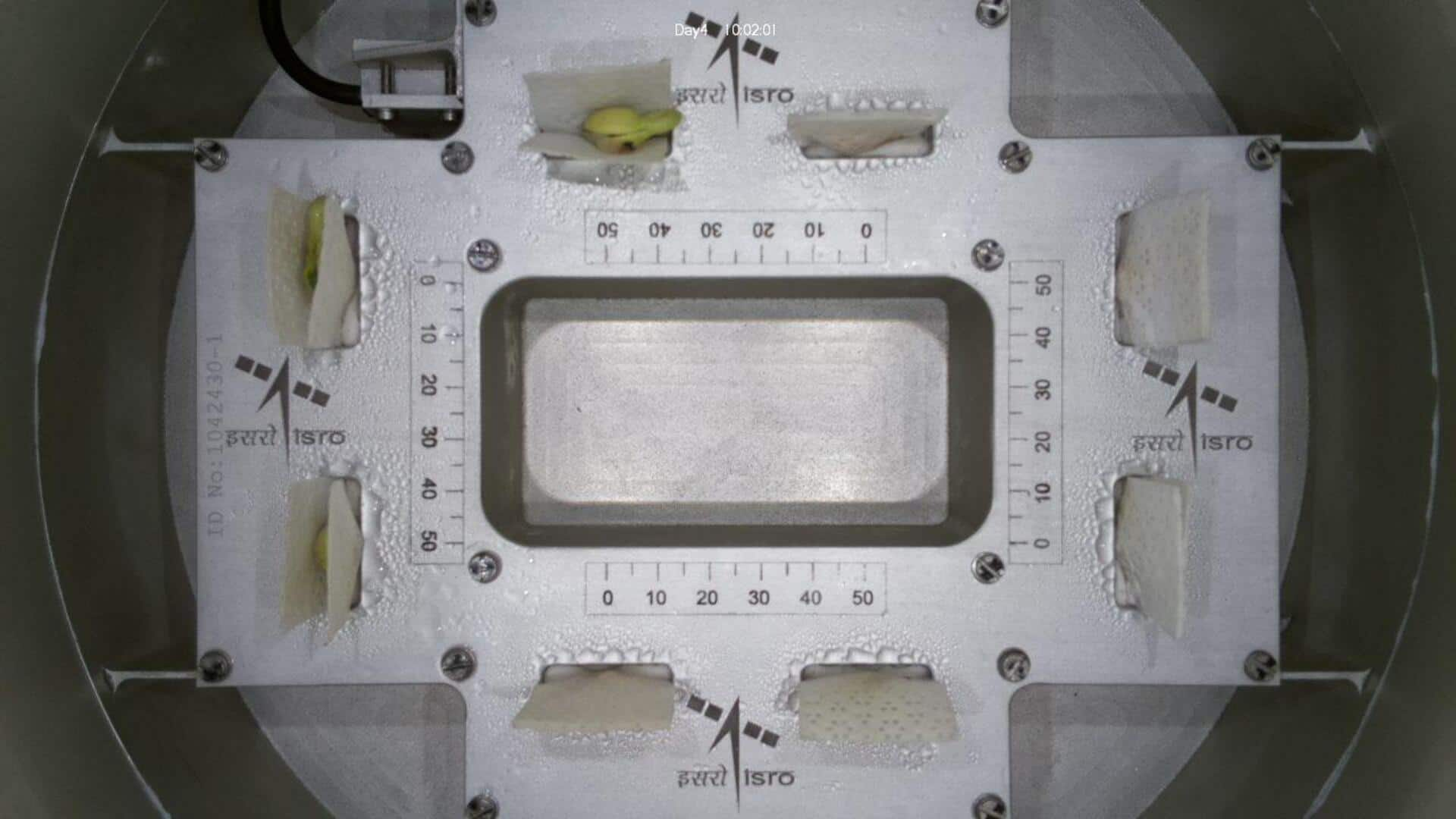
ISRO grows cowpea seeds in space: Here's why it matters
What's the story
The Indian Space Research Organisation (ISRO) has reached a major milestone by successfully germinating cowpea seeds in microgravity in just four days. The experiment was conducted as part of the PSLV-C60 POEM-4 mission with the help of the Compact Research Module for Orbital Plant Studies (CROPS). The CROPS payload, an innovation of the Vikram Sarabhai Space Centre (VSSC), is an advanced system designed to study seed germination and plant sustenance under microgravity.
Technological innovation
CROPS: A look at the technological marvel
The CROPS module is powered by cutting-edge technologies to observe and study plant growth in real-time. It features high-resolution camera imaging, oxygen and carbon dioxide concentration, relative humidity, temperature, and soil moisture. For the experiment, eight cowpea seeds were kept in a controlled closed-box environment with accurate thermal regulation. This established a critical basis for future studies on extraterrestrial agriculture.
Mission details
ISRO's POEM-4 mission: A hub of scientific innovation
The cowpea germination experiment was conducted as part of PSLV Orbital Experiment Module (POEM-4), a mission that highlights ISRO's increasing emphasis on scientific innovation. The POEM-4 mission carries 24 advanced payloads developed by ISRO and academic institutions, showcasing a collaborative effort to broaden India's horizons in space research. The successful germination of cowpea seeds in just four days, with leaves likely to sprout soon, is a major milestone in space exploration.
Twitter Post
Leaves expected to sprout shortly
Life sprouts in space! 🌱 VSSC's CROPS (Compact Research Module for Orbital Plant Studies) experiment onboard PSLV-C60 POEM-4 successfully sprouted cowpea seeds
— ISRO (@isro) January 4, 2025in 4 days. Leaves expected soon. #ISRO#BiologyInSpacepic.twitter.com/QG7LU7LcRR
Future implications
CROPS project: A step toward sustainable space agriculture
The CROPS project is a part of a larger effort to develop sustainable farming practices for extraterrestrial environments. This breakthrough has far-reaching implications for future space missions, particularly those involving long-duration travel and establishing a human presence on other planets. By proving that plants can be grown in extreme conditions, ISRO is paving the way for advancements in space agriculture, a key element of self-sustaining space habitats.